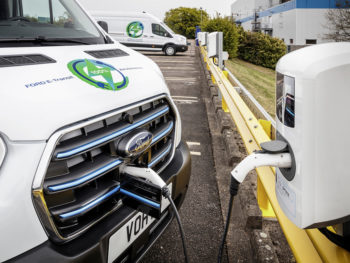Falling production costs for electric vehicles will make them cheaper to buy in every light vehicle segment by 2027.

New research, carried out Bloomberg New Energy Finance (BNEF) on behalf of eco campaign group Transport & Environment (T&E), forecasts that medium-size electric cars (C- and D-segments) and SUVs will be as cheap on average to produce as petrol vehicles from 2026, while small cars (B-segment) will follow in 2027.
Meanwhile, light electric vans will be cheaper than diesel vans from 2025, and heavy electric vans from 2026, BNEF also finds.
The fall in costs is due to decreasing battery costs , new vehicle architectures and manufacturers’ dedicated production lines for electric vehicles.
Across the EU, the research shows that battery electric vehicles could reach 100% of new sales by 2035 if lawmakers introduce measures such as tighter vehicle CO2 targets and strong support for charging infrastructure, according to T&E.
But without such stimulation measures, battery electric cars will reach only an 85% market share, and e-vans just 83%, in the EU by the same date – and Europe will miss its goal to decarbonise by 2050.
T&E is calling on the EU to tighten emissions targets in the 2020s and set 2035 as the end date for selling new polluting vehicles, which is already the case in the UK – it says this should be done in June when the EU will propose tightening the bloc’s car CO2 targets.
While seven carmakers and 10 European countries have announced plans to phase out conventional cars, an EU commitment is needed.
But it added that the early build-up of EV production and sales will be crucial to drive down costs and generate consumer buy-in for further adoption in the future – and a new 2027 target for CO2 emissions is needed to ensure that, T&E continued.
It also said that EU lawmakers also need to set van manufacturers challenging CO2 targets, alongside dedicated e-van sales quotas, to increase investment and the number of electric models on the market.
And T&E set out that markets should ramp up other policies to stimulate the market, such as a faster roll-out of charging points.
Julia Poliscanova, senior director for vehicles and e-mobility at T&E, said: “With the right policies, battery electric cars and vans can reach 100% of sales by 2035 in western, southern and even eastern Europe. The EU can set an end date in 2035 in the certainty that the market is ready. New polluting vehicles shouldn’t be sold for any longer than necessary.”

